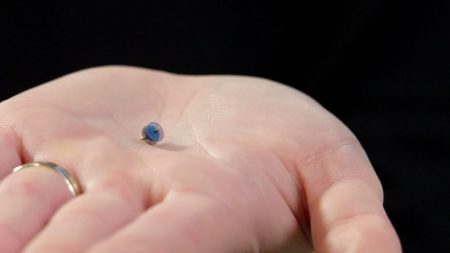January 15, 2019 – Piccolo is the smallest medical device ever invented for correcting a congenital heart defect common to infants born prematurely. Developed by Abbott Laboratories, it can be implanted in babies as small as under a kilogram (about 2 pounds) to close a small hole in their hearts, a condition known as patent ductus arteriosus (PDA). PDA and premature birth babies are very much associated.
The ductus arteriosus, the naturally occurring hole associated with PDA exists in utero to facilitate a baby’s circulatory system. But shortly after birth the ductus closes. So while necessary to maintain proper circulation before a baby takes its first breath, when it remains open it creates a leak as blood shunts between the aorta and pulmonary arteries. That means the infant gets less oxygen to the body and over time symptoms that foreshadow pulmonary hypertension as blood pressure builds in the lungs, congestive heart failure, where the heart enlarges, or endocarditis, an infection inside the heart’s inner lining caused by the structural impediment that allows bacteria to take hold and grow.
In the past treatment of a PDA happened well after a baby was born because the defect can be hard to initially detect. But when known symptoms start to appear it becomes important for doctors to check for an existing PDA. One thing to consider, PDAs are more common in girls than boys, so for every premature baby girl born, doctors should be looking for signs and symptoms from the earliest stages of development.
What are these symptoms?
- Breathlessness
- Poor stamina
- Excessive sweating
- Poor eating
- Rapid heart rate
- Failure to thrive exhibited by below average growth
Worldwide every year more than 15 million children are born prematurely. Premature birth complications are the leading cause of death in children less than five years of age. That equals 1 million children every year. The World Health Organization (WHO) states that 75% of these deaths are preventable with what it calls “cost-effective interventions.”
In the United States where the Amplatzer Piccolo(TM) Occluder was invented, over 517,000 children are born prematurely. And it is this new device that can correct a PDA through implantation using a transcatheter treatment procedure. A cardiac catheter containing the device is threaded through an artery into the heart and then deployed to permanently seal the patent ductus.
Yesterday the U.S. Food and Drug Administration (FDA) approved the Piccolo to treat PDA in premature babies. For about 12,000 of these children the device will be a lifesaver. These are premature births where a significant PDA is detected, large enough to immediately cause the kinds of symptoms described above. In the announcement, Dr. Evan Zahn, Director of the Congenital Heart Program for Cedars-Sinai’s Smidt Heart Institute, is quoted stating “this approval is a potentially life-saving advance for the very smallest premature infants that will help us treat these delicate babies who might otherwise not be able to survive.” In going the transcatheter method of intervening to correct a life-threatening heart defect, the risk to the premature birth baby using open-heart surgery is dramatically reduced and the recovery after the procedure leads to fewer complications including the threat of post-operative infections.
















